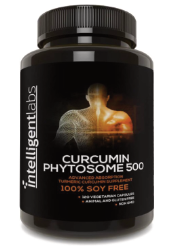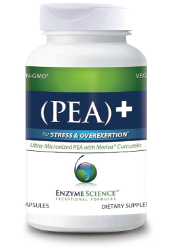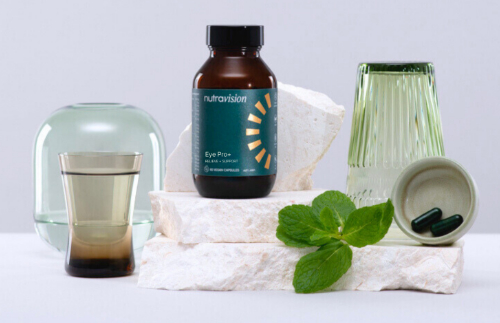
What is uveitis and why is it important?
Uveitis is the inflammation of the uveal tissue of the eye. The uvea is the middle coat of the eyeball, located between the sclera (outer shell) and the retina (inner wallpaper).
In the United States, uveitis occurs in 30,000 to 40,000 people per year. It seems to be a little bit more common in females, and usually happens between 20 and 60 years of age. Just be aware that any age group can be affected, including children.
Sometimes the cause of the uveitis is very clear cut, such as recent injury or surgery to the eye. Uveitis can also be caused by underlying systemic infections (such as tuberculosis and syphilis) or autoimmune disease (such as inflammatory bowel disease, ankylosing spondylitis and sarcoidosis), where the immune system mistakenly attacks your body’s own tissues.
Most of the time though, the cause is unknown despite extensive investigations and tests. It just happens.
If untreated, it has the potential to cause pain and, more importantly, sight loss and permanent blindness. Uncontrolled uveitis gives rise to other eye problems such as macular edema, glaucoma and cataract. It is no wonder uveitis is the third leading cause of blindness in the U.S., behind macular degeneration and glaucoma.
Treatment is with anti-inflammatory and immunosuppresant medication, which needs to be started early to prevent vision loss.
Here’s the good news: there are medication-free, natural health and wellness tips that you can incorporate into your lifestyle to reduce your risk of uveitis.
Here I list 4 natural remedies and supplements that I believe are important to help with uveitis. These should complement, rather than replace the uveitis treatment that your eye specialist has prescribed for you.
1. Avoid cigarette smoke to reduce toxins
Smoking is a significant risk factor for many eye and general health problems. Eye conditions that can worsen with cigarette smoking include cataract, age-related macular degeneration and retinal vein occlusions.
Cigarette smoke contains many harmful chemicals, such as tobacco-specific N-nitrosamines (TSNAs), benzene, pesticides, arsenic, cadmium, cyanide, and many many more. These toxins circulate all around the body and cause oxidative damage to the cells of the eye, thus promoting inflammation and affecting its ability to heal.
So, how does smoking impact on uveitis?
Firstly, smokers are twice more likely to develop uveitis than non-smokers.
Secondly, smoking also increases the severity of the uveitis, so you will need longer treatment with steroid eye drops, and are likely to suffer more complications, such as cataract and macular edema.
The evidence is unequivocal. If you are a smoker and you suffer from uveitis, then you really do need to stop smoking. If that is not possible, then please at least try to cut down on the amount you smoke.2. R&R – Have enough rest and relaxation
In some people, stress is a trigger factor for uveitis and also other eye conditions, such as central serous chorioretinopathy.
Having sufficient rest ensures that your body and eyes recover from daily exertions. Schedule some time to relax your mind and body daily, even if only for 5 minutes.
You can meditate, go for a walk, have a massage or simply do something you enjoy doing that will take your mind off your worries. This will make you feel much better overall and may help to reduce the recurrence of uveitis.
3. Eat a healthy and balanced diet for uveitis
Good nutrition and a healthy diet are important to maintain overall eye health. Aim for a healthy diet with plenty of fruits and vegetables while minimizing trans-fatty acids.
Eyes affected by uveitis are more prone to the damaging effects of oxidative free radicals damage. To combat the effect of free radicals, ensure that your diet is full of natural antioxidants to help boost the immune system.
These include vitamin A (carrots, apricots, papayas), vitamin C (berries, citrus fruits, tomatoes), vitamin E (avocados, green leafy vegetables, fish) and zinc (whole bran, eggs, peanuts).
4. Natural supplements and herbs for uveitis
Vitamin D helps to regulate inflammatory processes in the body and plays an important role in our immune systems.
In a landmark study, researchers from Melbourne, Australia have found that vitamin D supplementation was associated with reduced uveitis activity. Similarly, an increase in the amount of sun exposure in those with vitamin D deficiency also appeared to be beneficial.
In this study, serum vitamin D levels, sunlight exposure, and dietary intake were assessed in 151 patients who were either normal, had inactive uveitis, or had active uveitis.
Those with uveitis were more likely to have low levels of vitamin D compared to those without.
Those with active uveitis had even lower vitamin D levels.
These results are quite compelling, and suggest that vitamin D should be considered as an option to prevent the relapse of uveitis.
Vitamins C and E are both antioxidants, and when used together may also be beneficial for uveitis.
A double-blind trial found that vitamins C and E, taken in addition to standard treatment for acute anterior uveitis, had better visual acuity than placebo after the 8-week study period.
The combined treatment was with vitamin C 500 mg twice daily and vitamin E 100 mg twice daily.
Interestingly the vitamin combination did not influence the recovery rate.
Nevertheless, the effect on visual acuity suggests that vitamins C and E may help in protecting and keeping the eye healthy while it recovers from the uveitis.
Turmeric (Curcuma longa) is a fragrant, yellow spice well known as an ingredient in curries. It has also been used as a medicinal herb in India since ancient times.
The main active ingredient of turmeric is curcumin. It is both anti-inflammatory and antioxidant, with research showing potential health benefits for the heart, brain, joints, and even against cancer.
A small study from India found that turmeric 375 mg 3 times daily was able to reduce symptoms and inflammation in chronic anterior uveitis within 2 weeks of starting treatment. No side effects were reported. In this study, no steroid or other anti-inflammatory medication was used.
In a separate study, researchers from Italy investigated the benefits of Meriva in recurrent anterior uveitis. Meriva is a proprietary curcumin-phospholipid blend that increases the absorption 20-fold when compared to ordinary curcumin extract.

The study found that Meriva curcumin 600 mg twice daily was well tolerated and was able to reduce symptoms of recurrent anterior uveitis within a few weeks of use when used concurrently with standard treatment.
Just take note that curcumin by itself is generally poorly absorbed into your bloodstream. To increase bioavailability, you will need to combine the turmeric or curcumin extract with another compound, such as phosphatidylcholine or piperine (found in black pepper).
If you decide to take curcumin supplements, I think it is best to take the Meriva form. Highly-rated Meriva and other curcumin supplements are available for purchase online through iHerb and Amazon.

Intelligent Labs Curcumin Phytosome

Enzyme Science PEA + Meriva Curcumin
Please note that turmeric may increase your risk of bleeding. Therefore, please use with caution if you are taking blood-thinning medications (such as aspirin and warfarin), or if you have a health condition that increases bleeding (such as chronic liver disease or low blood platelets). Make sure you consult with your family doctor first before taking turmeric or curcumin supplements.
Final word on natural treatments for uveitis
The natural uveitis remedies described above must not replace the uveitis treatment that has already been prescribed by your eye specialist. Rather, these remedies should be in addition to and complementary to your existing treatment.
If you are considering any natural treatments for your uveitis, please make sure to discuss with your eye specialist and family doctor first to avoid adverse drug interactions and unwanted side effects
See Related: How you can reduce your risk of uveitis



